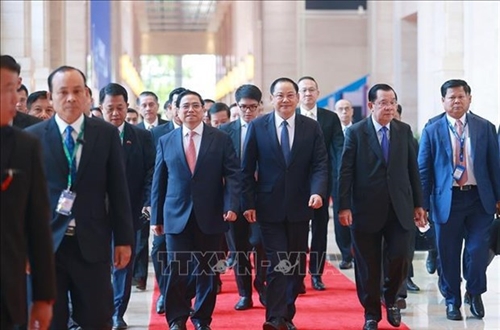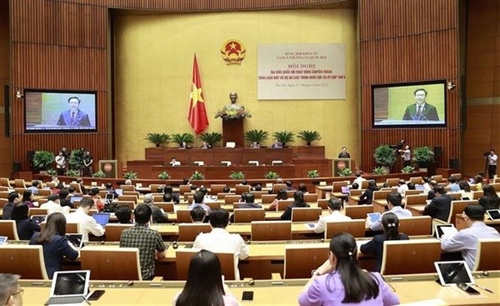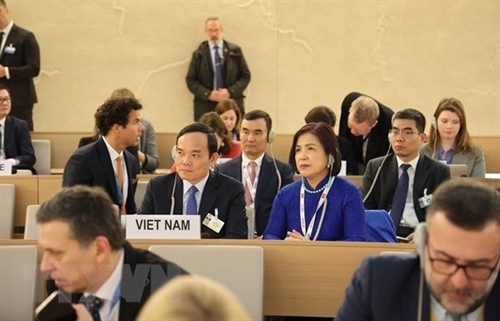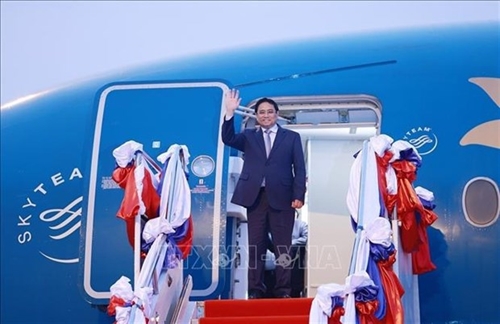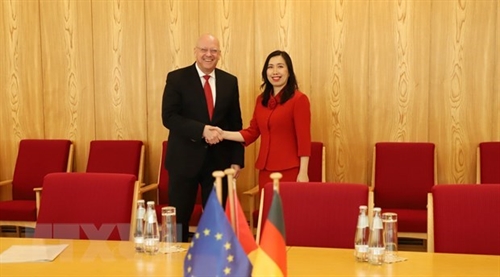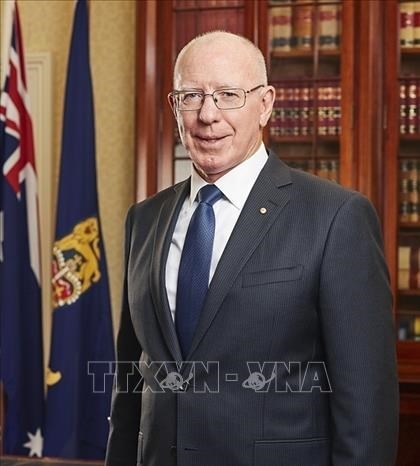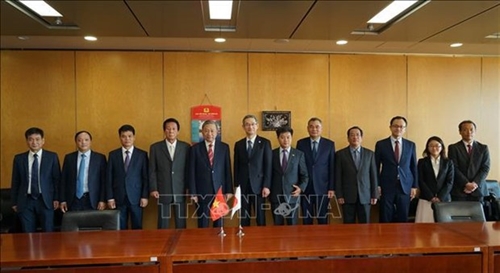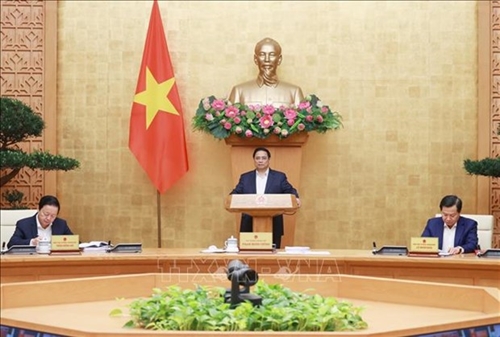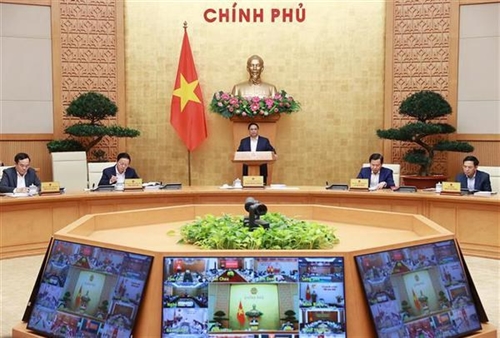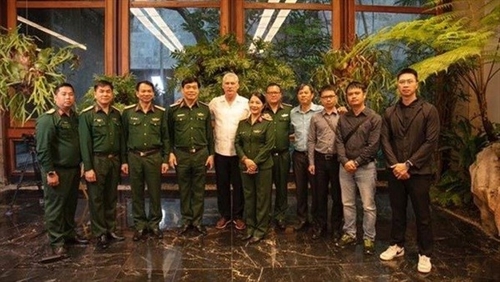>>Vietnamese, Lao, Cambodian PMs discuss cooperation in working breakfast
>>PM Pham Minh Chinh arrives in Laos for 4th MRC Summit
The 4th Mekong River Commission (MRC) Summit, themed “'Innovation and Cooperation for a Water Secure and Sustainable Mekong” concluded in Laos on April 5 after issuing the Vientiane Declaration which called for enhanced cooperation for sustainable Mekong River Basin.
The Vientiane Declaration noted the priority actions and commitments from prior MRC Summits and their ongoing relevance to MRC member countries. It recognized the importance of the Mekong River Basin’s contributions, a strong and financially sustainable treaty-based River Basin Organization within the evolving institutional environment in the Mekong River Basin for managing water and related resources.
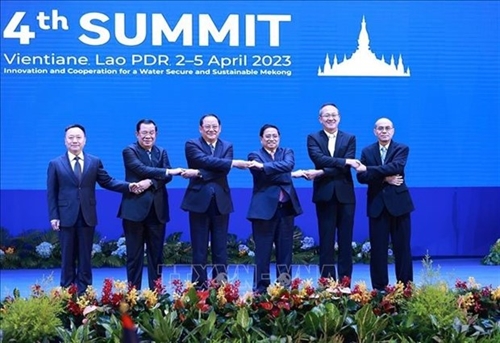 |
| The Prime Ministers of Vietnam, Laos and Cambodia and other delegates at the summit__Photo: VNA |
The Declaration reaffirmed the highest political commitment of leaders of the MRC countries to the effective implementation of the 1995 Mekong Agreement, and the role of the MRC as the primary regional water cooperation and diplomacy platform as well as knowledge hub in enhancing the implementation of basin-wide strategies, procedures, guidelines, and data and information sharing that drives peaceful and mutually beneficial cooperation to achieve our shared vision for an economically prosperous, socially just, environmentally sound and climate resilient Mekong River Basin.
It acknowledged that while the development and utilization of the Mekong’s waters contributes considerably to economic growth, it can also have adverse impacts, including transboundary impacts that need to be jointly addressed, on the basin’s environment and vulnerable communities especially when exacerbated by climate change, such as severe floods and droughts, erosion and sedimentation, the impacts of rapid fluctuations in river levels and flows in parts of the basin, and the deterioration of environmental assets and fisheries including due to loss of connectivity.
It reiterated that to address the basin’s challenges, which have become much more complex, both development and management options are needed to ensure sustainability of the environmental resource base, to identify alternative investment solutions and adequately consider the linkages between different sectors, to move beyond water resources planning to encompass operational management, including through opportunities for transboundary coordination, especially in terms of timely and regular sharing of operational data from dams and other water infrastructure, and to identify joint investment projects that contribute to water, food and energy security.
The document called on the MRC, all partners and stakeholders to find innovative solutions to cope with these challenges, and to seize the opportunities and intensify cooperation for a water secure and sustainable Mekong River Basin, while abiding by the principles of openness, transparency, inclusiveness, mutual benefits, equality, consultation, coordination, cooperation, and respect for sovereignty.
It reiterated commitment to joint efforts to further strengthen the role of the MRC in helping to ensure a water, food and energy secure and economically, socially and environmentally sustainable Mekong River Basin. It also welcomed the strategic shift to proactive regional planning and coordinated operational management, and called on all basin countries, partners and stakeholders to continue to work with the MRC to uphold the 1995 Mekong Agreement and its Procedures, and to support the implementation of the Basin Development Strategy 2021-2030 in accordance with this Declaration and the One Mekong One Spirit.
